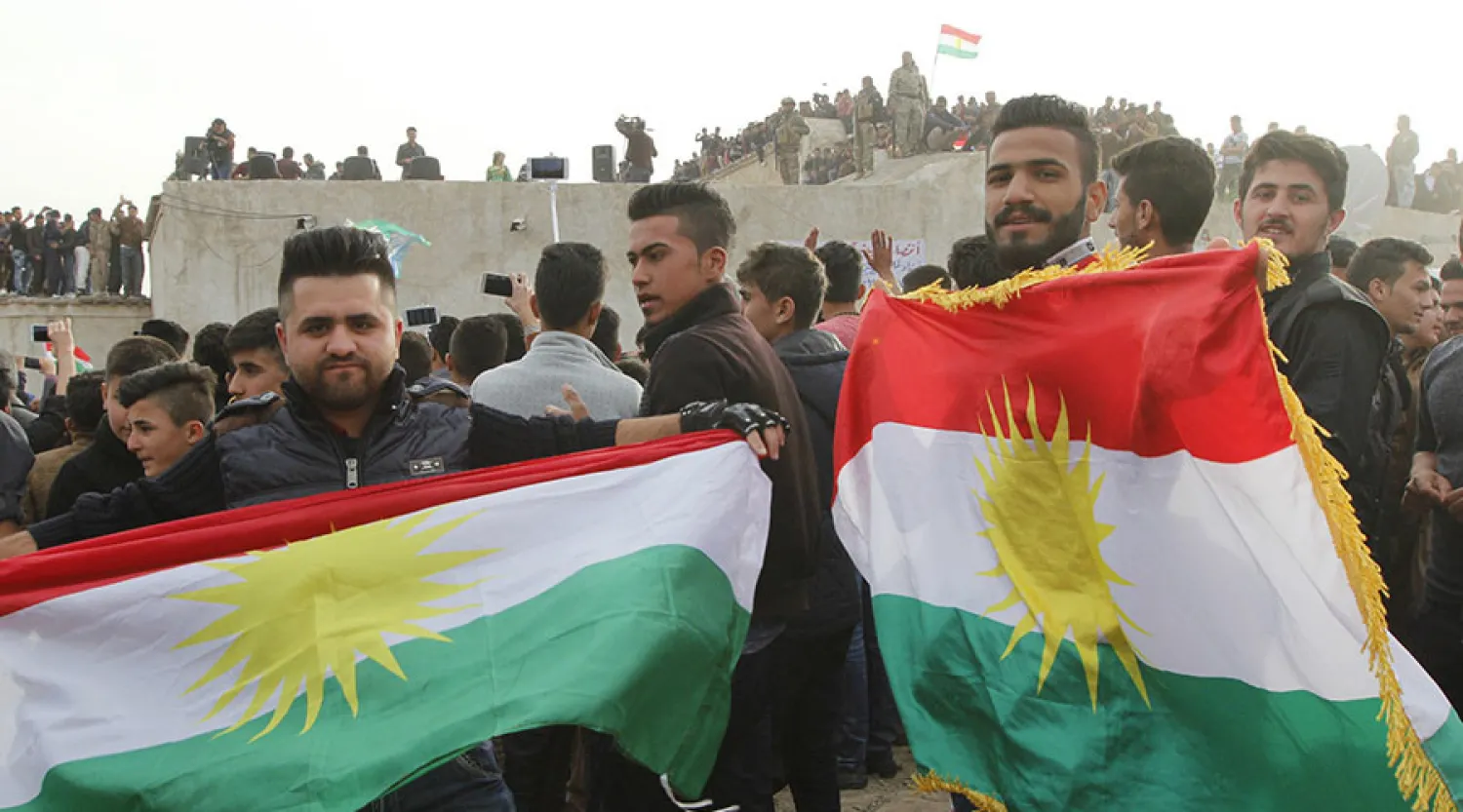The official media campaign for Kurdistan’s independence referendum was launched on Tuesday evening in Erbil, where tens of thousands of citizens celebrated the event in the city’s main park, next to the historic castle.
Politicians, activists and intellectuals, as well as representatives of the region’s national and religious leaders, attended the inauguration ceremony, which featured national chants and slogans supporting the referendum.
The representative of the Yazidi community at the Supreme Council for the Referendum, Sheikh Shamo, told Asharq al-Awsat: “The Kurdish people are proud of the political leadership’s seriousness and determination to hold the referendum on the specified date.”
“This will encourage the people who have fought and achieved victory over terrorism,” he added.
He also stressed that the Yazidi community would hold continuous activities to encourage citizens to vote in favor of the referendum.
Sarbest Mohammed, a young Kurdish man from Dohuk, stood with a group of friends in Erbil’s park, covering his back with the flag of Kurdistan and shouting: “Yes to the Kurdish state!”
“I came with all the family to the city center to participate in this historic celebration. We will celebrate again, in this place, the day of the declaration of the establishment of the Kurdistan State,” he said in remarks to Asharq al-Awsat.
Kamran Farhad joined his friend Sarbest to celebrate the event.
“We chose the referendum, and only through it we can reach our goals in establishing an independent state,” he stated, calling on the Arab world and the international community to support the state of Kurdistan “as it will be a source of stability in the region.”
Omar Karim, from Mosul, has been living in Erbil for years. He told Asharq al-Awsat: “I am an Iraqi citizen. I have lived in Kurdistan for more than three years with my family. The situation here is the best. The territory welcomed us in the worst conditions and gave us support and care.”
“Therefore, we Arabs in Kurdistan support the referendum and the establishment of the Kurdish state,” he added.
The Independent High Electoral and Referendum Commission issued a set of instructions to regulate the media campaign, prohibiting citizens and officials from using public funds, state institutions and places of worship, or raising slogans that lead to rivalry and conflict in the campaign.
Meanwhile in Tehran, Tasnim news agency quoted the Special Assistant of the Iranian Shura Council Hussein Amir Abdullahian, as saying that the referendum in Iraq’s Kurdistan would lead to a new crisis.
During his meeting with the diplomatic advisor to the French President, Ambassador Eric Chevallier, Abdullahian said: “Holding a referendum in Iraq’s Kurdistan will not be a solution to the problems, and there will be a new crisis in Iraq, especially as creating new differences will provide a new opportunity for terrorism.”









